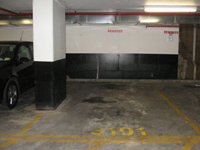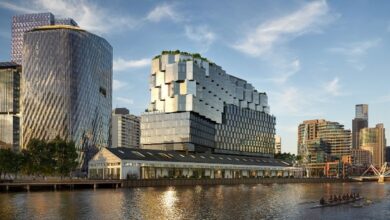
Can an owner rent out their exclusive use car space?
A recent decision in the Queensland Civil and Administrative Tribunal has offered some clarity regarding the capacity for owners in community titles schemes to derive an income from an exclusive use parking space attached to their lot.
Sections 170 through 177 of the Body Corporate and Community Management Act 1997 provide for exclusive use by-laws. Under the act a body corporate is entitled to grant exclusive use of (or other special rights about) common property to a lot owner through an exclusive use by-law recorded in the community management statement. Exclusive use involves the right for an owner to use an allocated area of common property to the exclusion of all other owners and occupiers. One of the most common examples of exclusive use areas is that of a parking space.
If a grant of exclusive use is properly approved in a general meeting there is no restriction on how and to whom a body corporate can choose to allocate common property for exclusive use. However, pursuant to the regulation module applying to the scheme, an exclusive use by-law can impose conditions, including conditions regarding payments to the body corporate or lot owners.
Following the introduction of the act it was initially held that an exclusive use parking space could not be rented out by an owner to a third party by virtue of then-section 37 (now re-numbered as section 35) of the act. That provision states that an owner’s interest in a lot is inseparable from the owner’s interest in the common property, citing the example that an owner cannot separately deal with or dispose of the owner’s interest in the common property.
In L’Colonial Court [2002] QBCCMCmr 355 (3 June 2002) the adjudicator ruled, on the basis of section 37, that “a person to whom the common spaces are allocated has no right to rent these spaces for personal gain unless this was also coupled with the right to rent the owner’s interest in the lot as well. One of the essential features of section 37(3)is that it authorises the exclusive use in respect of specified common property only in conjunction with the use of the relevant lot.”
However, the adjudicator in the subsequent decision of The West Quarter [2003] QBCCMCmr 289 (12 December 2003), without any reference to section 37, proposed that in order to resolve a shortage of available parking spaces “…commercial lot owners will need to find alternative car spaces either by: renting an exclusive use car space from a willing residential occupier; parking in the street; or parking at a nearby parking station or other premises where the owner is willing to rent space for parking.”
The relevance of renumbered section 35 to exclusive use parking spaces was last year considered by an adjudicator in North Point Brisbane [2012] QBCCMCmr 355 (7 August 2012). In that matter, the applicant disputed another owner’s entitlement to collect rent on common property parking spaces transferred to it under an exclusive use by-law, on the basis that no specific permission existed within the by-law to rent out the spaces. The applicant also sought an order requiring the owner to account to the body corporate for money received from renting parking spaces.
The adjudicator in North Point Brisbane found, contrary to the decision in L’Colonial Court, that section 35 refers to an owner’s interest in the entire common property of the scheme as a tenant in common, rather than the rights granted under an exclusive use by-law. The adjudicator applied the findings of the Court of Appeal in the matter of Independent Finance Group P/L v Mytan P/L & Anor [2001] QCA 306 (particularly paragraphs 86 and 87) which ruled that an exclusive use by-law grants a statutory right rather than a common law interest in land. As such, the rights under an exclusive use by-law attach to the lot and benefit the occupier of the lot for the time being. The adjudicator noted that under section 180(4) of the act an owner cannot be prevented from leasing or otherwise dealing with their lot and that arguably this extends to the exclusive use rights that attach to the lot.
While an exclusive use by-law could potentially include a restriction on the leasing of the exclusive use areas (provided there was reasonable justification for those restrictions per section 94 of the act) there were no such conditions in the by-law before the adjudicator. Moreover in that instance the by-law specifically provided that the exclusive use car park area was for the use of the lot owner and occupier “for themselves and their licensees”.
The adjudicator was therefore of the view that the by-law specifically permitted the use of the car spaces by third parties under a lease or licence. In the adjudicator’s view, the owner was therefore free to use and enjoy its allocated areas of common property for its benefit, subject only to any limitations in the legislation (for example, in making improvements).
Additionally, the adjudicator found that there are no legislative provisions that automatically oblige a lot owner or occupier to give the body corporate any income generated from their exclusive use area. While such an obligation could be included as a condition in the by-law, there was no such condition in the relevant by-law for the dispute.
The adjudicator’s decision in North Point Brisbane was subsequently appealed to the Queensland Civil and Administrative Tribunal. In the appeal decision delivered on 19 June 2013 the tribunal member, James Thomas AM QC, upheld the adjudicator’s decision and stated that: “In my view a party who has the exclusive right to use and possess property prima facie has the right to its fruits and profits. Unless particular types of dealing are prohibited with respect to the subject spaces, or some special limitation is imposed, persons with the right of exclusive use are entitled to retain such profits as they can make from lawful use of the property, provided of course they do not create a nuisance or permit it to be used for some purpose other than car parking. It is significant that (the by-law for the dispute) contemplates the exclusive use and enjoyment not only of lot owners, but also “their licensees”. “Licensees” is not limited in any way such as to bare licensees and would include licensees who pay for the privilege. It is likely that many lot owners who do not personally need to use their exclusive use car places make arrangements for reward with third parties to use those spaces. It would be surprising if any lot owner holding the benefit of an exclusive use car space were obliged to account to the body corporate for any benefits received in respect of it…
“In the absence of some special limitation in an exclusive use by-law, I consider that the grant of the exclusive use of a car parking space permits the grantee to grant a license to others and to retain the profits of lawful use of the space, There is no obligation to account to the body corporate for any such profits, at least under an exclusive use by-law such as (the by-law for the dispute).
In light of the above, if an owner of a lot with an exclusive use car space wishes to rent that space the owner must have regard to any specific limitations or conditions imposed under the by-law which granted exclusive use. An owner should also be mindful that the space may not be used in a way that creates a nuisance or that prevents other persons from enjoying or using lots or common property. Any improvement to the car space which the owner wishes to make to enable it to be rented would require the approval of the committee, or the body corporate at a general meeting, dependent on the value of the proposed improvement.
An owner who intends to rent out their parking space may first wish to consult with the body corporate committee for the scheme and, if necessary, seek legal advice.

AccomNews is not affiliated with any government agency, body or political party. We are an independently owned, family-operated magazine.





